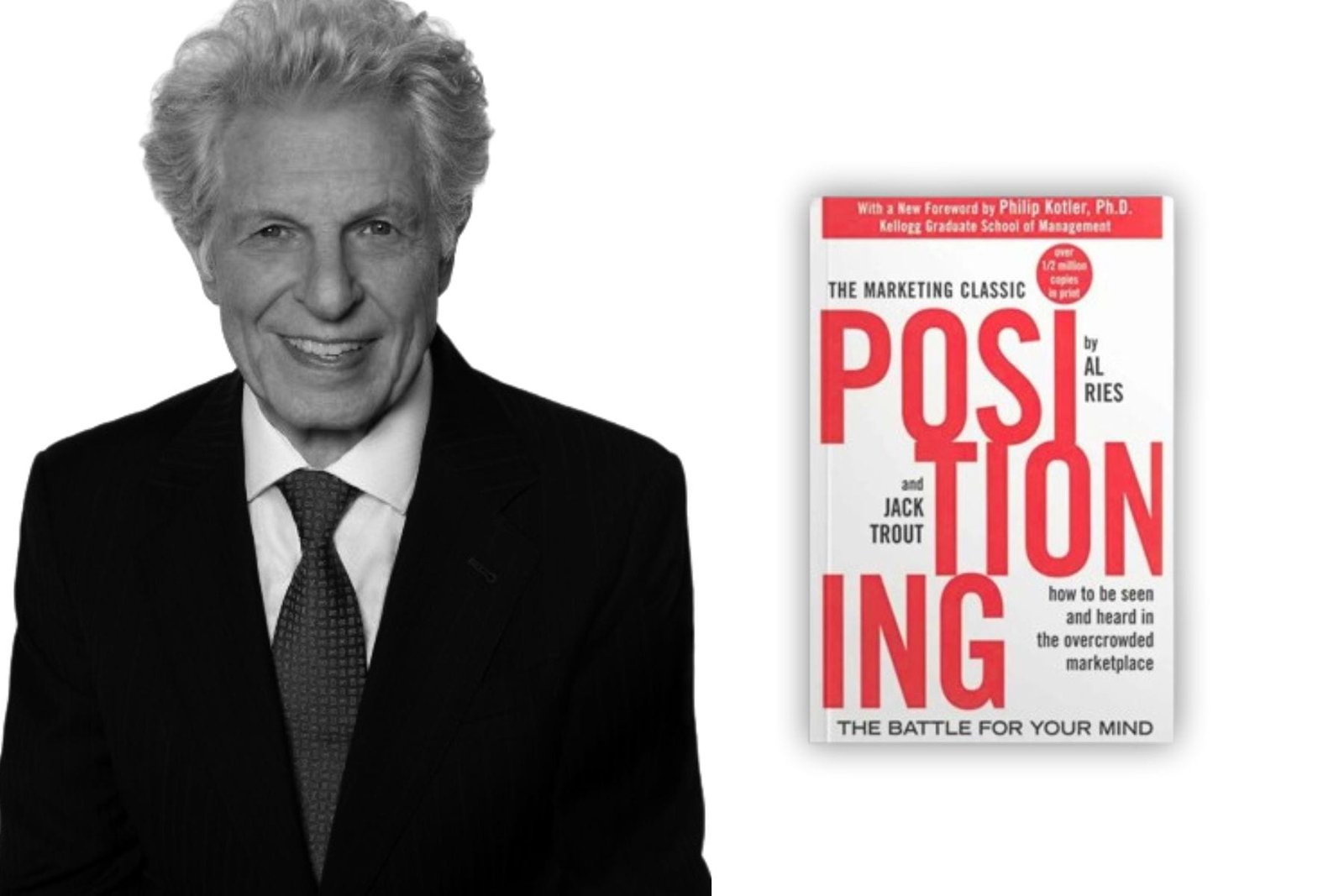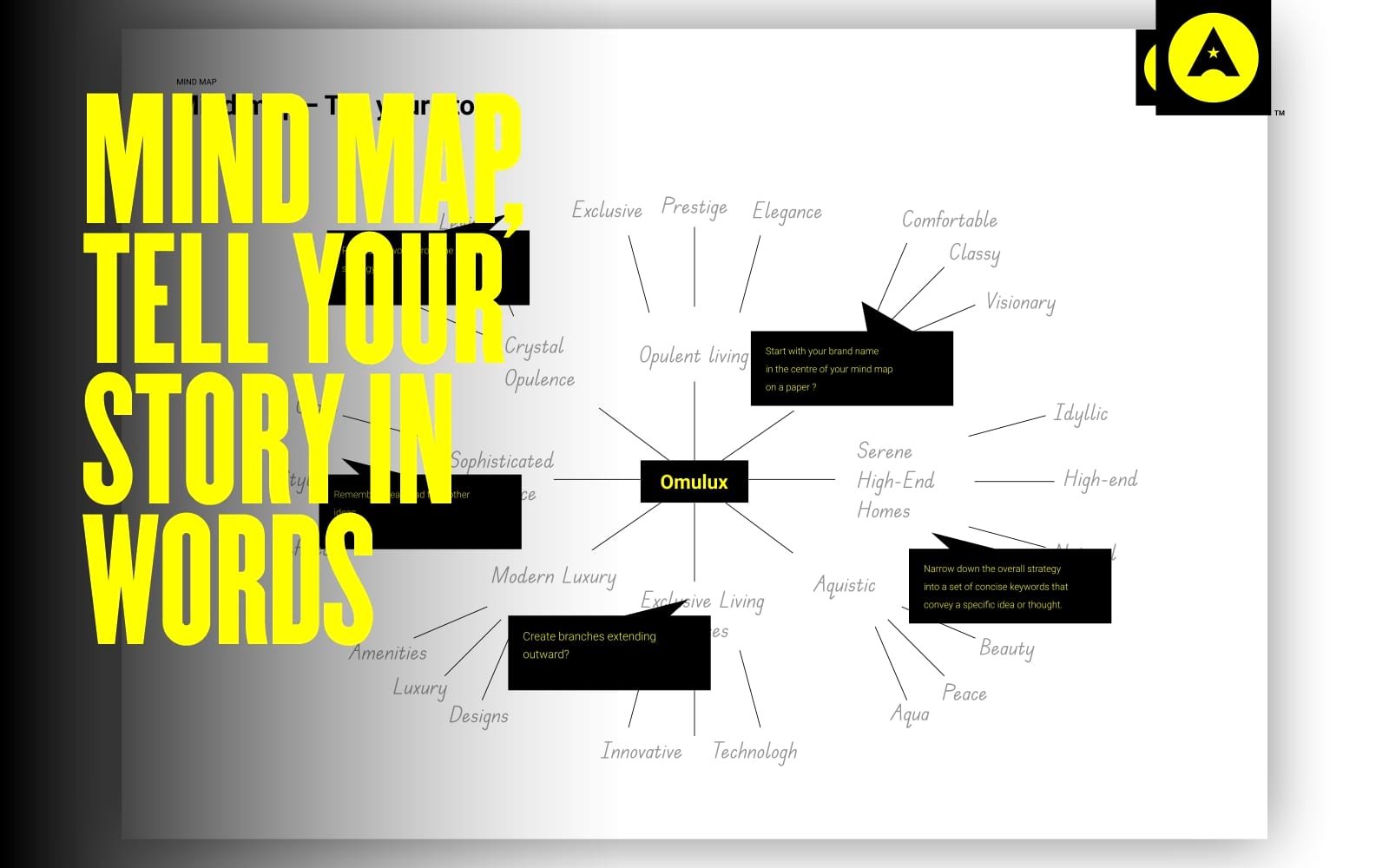Brand Strategy
The Building Blocks Of Successful Brand Strategy
09.02.2025
By Shaikh Asif

Brand Strategy
09.02.2025
By Shaikh Asif
Embark with us on a journey through the complex design of brand strategy framework and elements, where we uncover the secrets behind crafting a robust foundation for unparalleled business success. From the strategic elements that are essential for brand development to the critical components of a comprehensive brand strategy plan, we delve deep into the core principles that elevate brands from mere entities to beloved icons.
Are you ready to discover the key components of effective brand strategy, the building blocks that transform visions into realities?Join us as we navigate the terrain of brand strategy, illuminating the foundational elements that shape destinies and define legacies. I will explain step by step the key elements of brand strategy, what they mean, why they are important, and the benefits of each strategic element or building block to create an unforgettable brand experience that emotionally connects with the world, drives growth and ultimately elevates your business to unparalleled heights of success.
As we explore the strategic landscape, ask yourself: What sets successful brands apart? How can I infuse my brand with the essence of distinction? Through insightful analysis, compelling anecdotes, and practical guidance, I invite you to unlock the secrets of brand strategy mastery and chart a course toward unparalleled success. Every successful brand has a strong strategy behind it, which is why they stand out in the world. In this guide, we will learn about the key elements of brand strategy that every business must have.
Let’s start with the core element, the purpose behind what you do, how you do it, and most importantly why you do it. What are the reasons for your existence? What positive change do you want to create in this world?
Let’s define what is brand purpose and why it is important! Your brand isn't just selling products or services; it's on a mission, a mission to make a difference, to create positive change in the world. That's the essence of brand purpose, and in today's competitive world, it's not just a nice-to-have; it's a must-have.

Brand purpose is the fundamental reason for a brand's existence beyond just making a profit. It defines the positive impact a brand aspires to create in the world. In a sea of options, consumers are drawn to brands that stand for something meaningful, something beyond profit margins. They crave authenticity, connection, and purpose-driven action. Would you rather support a brand that simply sells shoes or one that is committed to providing footwear to underprivileged children with every purchase? The latter not only fulfills a need but also fulfills a deeper desire to contribute to a greater cause. That's the power of brand purpose in action.
Having a well-defined brand purpose isn't just good for your conscience; it's good for business too. Research shows that purpose-driven brands outperform their competitors in terms of customer loyalty, employee satisfaction, and long-term profitability. Why? Because purpose resonates. It fosters loyalty among customers who share your values and inspires employees to go above and beyond in their work.
Moreover, in today's socially conscious marketplace, consumers are voting with their wallets, choosing brands that prioritize sustainability, ethics, and social responsibility. By embodying a clear brand purpose, you not only attract customers but also become a catalyst for positive change in your industry and beyond. Think of brand purpose as the beating heart of your business—a magnetic force that not only attracts customers but also inspires loyalty and drives growth. It's not just about what you sell; it's about why you exist.
Think of your brand as a ship sailing through the vast ocean of the market. Without a clear direction, it's easy to get lost among the waves of competition. This is where your brand vision comes in - it acts as your guiding light, illuminating the path towards your desired destination.
Your brand vision is more than just a statement; it's the soul of your business. It encapsulates your aspirations and ultimate goals. Think of it as the path or journey for your brand's future – a beacon that inspires and motivates both your team and your customers. With a well-defined brand vision, you not only chart the course for your company but also create a sense of purpose that resonates with your audience.

In a world filled with noise and distractions, clarity is key. Your brand vision serves as a filter, helping you make strategic decisions and stay focused on what truly matters. It's like having a clear lens through which you view every aspect of your business – from product development to marketing strategies. By articulating your vision concisely and compellingly, you can align your team, attract investors, and differentiate your brand in the marketplace. Whether you're a startup disrupting an industry or an established company evolving with the times, a clear brand vision enables you to stay agile and relevant in an ever-changing world. As you navigate the complex terrain of branding, remember that your brand vision is more than just a statement – it's a living, breathing entity that shapes the identity and direction of your business.
By crafting a compelling vision that resonates with your audience and inspires action, you can position your brand for success in the marketplace. So, dare to dream big, dare to be bold, and let your brand vision light the way to a brighter future.
Values are the powerful words that guide your decision-making. Brand Values are your guiding principles and philosophies that reflect who you are, what you're known for, and why you matter. Brand values are unique qualities that make your brand strong internally. Brands that have strong values can stand out emotionally and create a lasting impact on this world.
Brand values encapsulate the fundamental beliefs and principles that guide a company's behavior, decisions, and interactions with the world. They act as the Guiding Star, shaping the brand's identity, culture, and reputation.

You might be wondering why should I care about brand values. Well, brand values are your cornerstone for differentiation and connection in today's cluttered marketplace. In a sea of competition, consumers are moving toward brands that resonate with their beliefs and aspirations. By embodying authentic brand values you establish trust, loyalty, and emotional bonds with your audience. Simply put, brand values are the heart of building meaningful relationships and fostering enduring success.
Embracing brand values isn't just a feel-good exercise – it's a strategic game-changer. First, brand values serve as a compass, guiding internal decisions and actions across all levels of the organization. The alignment of goals and values within a company fosters unity, transparency, and a collective understanding of the organization's mission among the workforce.
Moreover, brand values act as a magnet, attracting like-minded customers who align with your ethos. This leads to enhanced customer loyalty, advocacy, and ultimately increased profitability. Brands anchored in strong values navigate crises with grace and emerge more resilient.
Now we're diving deep into the backbone of your brand strategy: understanding your target audience that will transform the way you approach your business.
Think You're an artist with a blank canvas. Before you can create a masterpiece, you need to know who you're painting for, right? That's where defining your target audience comes in. Your target audience isn't just a vague idea of who might buy your product or service. It's a laser-focused, fine-tuned profile of the people who are most likely to resonate with what you offer.
But who are they? What do they do? What keeps them up at night, and what dreams do they chase during the day? Understanding your target audience means getting to know them inside and out. It's about uncovering their needs, wants, pain points, desires, and aspirations. When you know your audience like the back of your hand, you hold the key to their hearts.

Imagine you're throwing a party. Would you just invite anyone off the street, or would you carefully curate a guest list of friends who appreciate your vibe? Your target audience is your VIP guest list. Knowing them intimately allows you to tailor every aspect of your brand—from your messaging to your products—to resonate deeply with them. But it's not just about making a connection. Knowing your audience gives you a competitive edge. Having insider information in a high-stakes game allows you to anticipate their needs, gain a competitive edge, and establish your brand as the ultimate solution they have been seeking.
When you understand your audience, you can speak their language with fluency and finesse. You can craft marketing campaigns that hit them right in the feels, turning casual browsers into loyal fans. Understanding your audience also means making smarter decisions. Say goodbye to guessing games and hello to successful brand strategies that deliver real results. But perhaps the most significant benefit is the sense of connection it fosters. When your audience feels seen, heard, and understood, they don't just buy from you—they become advocates for your brand. "They will praise you loudly and publicly, attracting more people with similar interests to your circle."
Imagine you are on a battlefield, equipped with knowledge and insights, prepared to dominate your market. This is the power of competitive analysis for your business. It provides you with the necessary tools to outsmart your competitors and secure your position at the top.
Let's start with the basics. Competitive analysis, also known as a market audit, is like peering through a magnifying glass to examine every aspect of your competitors' strategies, strengths, weaknesses, and market positioning. It's about understanding who you're up against, what they're doing, and how you can do it better. Think of it as Sherlock Holmes investigating your competitors to uncover their secrets and weaknesses.

Well, let me tell you—it's absolutely crucial! Imagine you're sailing a ship through stormy seas, but you have no idea what other ships are out there or which direction they're headed. Sounds like a recipe for disaster, right? That's exactly why competitive analysis is essential—it gives you a clear navigation map in those stormy seas. It helps you anticipate market trends, identify emerging threats, and seize lucrative opportunities before your competitors even realize they exist.
Competitive analysis is a powerful tool that can give you an edge over your competitors in the race to the finish line. Imagine yourself running a marathon and having a bird's-eye view of the entire track, including the positions and strategies of your competitors. That's the kind of advantage that competitive analysis can provide. Here are some of the benefits it can offer:
Strategic Insights:
By analyzing your competitors' strategies, you gain valuable insights into what works and what doesn't in your industry. It's like having a crystal ball that shows the future of your market.
Identifying Gaps:
Ever felt like there's a missing piece in your business puzzle? Competitive analysis helps you spot untapped market opportunities and areas where your competitors are falling short. It's your treasure map to undiscovered riches.
Enhancing Differentiation:
In a sea of sameness, standing out is the name of the game. By understanding your competitors' offerings, you can carve out a unique value proposition that sets you apart like a shining beacon in the night.
Ever wondered what makes certain brands unforgettable while others fade into the background noise? It's all about brand positioning, the secret weapon that separates the champions from the losers.
Brand positioning is a critical aspect of marketing that defines how a brand is perceived in the minds of its target audience relative to its competitors. It helps your brand stand out, establish a unique identity, and communicate its value proposition effectively. Brand positioning refers to the space a brand occupies in the minds of its customers and prospects.
In the book "Positioning: The Battle for Your Mind" by Al Ries, the concept of positioning is introduced as a battle for space in the consumer's mind.

Think of brand positioning as your space in the vast universe of consumer choices. Without a clear position, you're just drifting aimlessly, hoping someone will notice you. But with a strong brand positioning, you become a beacon of light, guiding your target audience straight to you. It's not just about selling a product or service—it's about how consumers perceive them. It’s about crafting a distinctive, favorable, and differentiated image of the brand in the minds of consumers.
What's in it for you? Well, for starters, brand positioning gives you laser-focused clarity. Instead of trying to be everything to everyone, you can zero in on what makes you truly special and amplify it to the max. It also helps you command premium prices because when you're perceived as the top dog in your niche, people are willing to pay extra for the privilege of doing business with you. Brand positioning refers to the space a brand occupies in the minds of its customers and prospects.

When you're brand secured a strong presence in the hearts and minds of your customers, it's much harder for competitors to overshadow you. Whether you're a new startup or a seasoned CEO, mastering the art of brand positioning right right can make all the difference between blending in and standing out in the market. So, go forth and conquer the marketplace with confidence, knowing that your brand is positioned for greatness!
Imagine you're trekking through a dense forest, equipped with a map and a compass. Your destination is clear, but the path ahead is cluttered with obstacles and distractions. In this journey of entrepreneurship and leadership, your goals act as your compass, and goal prioritization serves as your map—providing direction and guiding you through the confusion toward success.
Goal prioritization is the art of identifying, organizing, and focusing on the most important objectives among many competing tasks and aspirations. It's about distinguishing between what's urgent and what's essential, ensuring that your efforts are aligned with your overarching vision and objectives.
Have you ever tried juggling a dozen balls at once? It's quite daunting right? Similarly, attempting to tackle every goal simultaneously in your business is a surefire way to spread yourself thin and dilute your effectiveness. Prioritizing goals allows you to channel your energy, resources, and attention toward the initiatives that will yield the greatest impact.

Clarity and Focus:
By prioritizing your goals, you gain clarity on what truly matters, enabling you to focus your efforts on the activities that align with your strategic direction.
Efficiency and Productivity:
When you know which goals to prioritize, you can allocate your time and resources more efficiently, maximizing productivity and minimizing wasted effort.
Strategic Alignment:
Prioritization ensures that everyone within your organization is on the same page, working towards common objectives that support the overarching mission and vision.
Adaptability and Agility:
In a fast-paced business environment, priorities can shift unexpectedly. By regularly reassessing and adjusting your goals, you cultivate adaptability and agility, allowing you to pivot swiftly in response to changing circumstances.
Achievement of Meaningful Outcomes:
Ultimately, prioritizing goals leads to the achievement of meaningful outcomes that drive business growth, foster innovation, and propel you closer to your long-term aspirations.
Think of brand personality as the soul of your business. It's the unique blend of characteristics, traits, and values that give your brand a distinct identity. Just like humans, brands have personalities too. Are you adventurous and daring like Red Bull, or sophisticated and elegant like Channel? Your brand personality shapes how consumers perceive and interact with your brand on an emotional level.
Imagine entering a room full of unfamiliar faces. Who do you find yourself gravitating towards? Most likely, it's those with an engaging personality that catches your attention. Similarly, in the crowded marketplace, having a well-defined brand personality can help distinguish you from your competitors, create a strong emotional connection with your audience, and establish brand loyalty.

Memorability:
Ever wonder why certain brands stick in your mind like glue? It's because they have a personality that leaves a lasting impression. Think of Apple's sleek and innovative persona or Nike's relentless pursuit of greatness. A strong brand personality makes you unforgettable in the eyes of your audience.
Consistency:
Consistency is key to building trust and credibility. When your brand personality shines through every touchpoint, from your website to your social media posts, it creates a cohesive brand experience that customers can rely on. It's like having a reliable friend who's always there for you, rain or shine.
Emotional Connection:
Let's get real—people buy with their hearts, not just their heads. A brand with a compelling personality taps into the emotions of its audience, making them feel understood, valued, and part of something bigger. It's the difference between a transactional relationship and a lifelong bond.
Differentiation:
When you're operating in a crowded market, it's important to stand out from the competition. One way to do this is by having a unique brand personality that sets you apart and gives consumers a reason to choose you over other options. This is what we mean by differentiation in a nutshell.
Enter the mighty mind map—a dynamic, versatile tool that's not just a map but a treasure trove of creativity, strategy, and innovation. Let's uncover its secrets and unlock your full potential.
Mind maps help organize thoughts and ideas into a logical structure. They enable you to categorize and prioritize information, identify key themes and connections, and establish hierarchies.
This organization is beneficial in brand strategy for creating cohesive visual identity and comprehensive plans that address various aspects of branding.

Consider your mind map as the foundation of your creative stronghold. It's not just about jotting down random thoughts; it's about structuring your ideas in a way that ignites inspiration and fosters clarity. By organizing information into branches and nodes, a solid mind map becomes your compass, guiding you through the labyrinth of complexities toward your goals. It's the ultimate blueprint for success, fueling productivity, focus, and innovation.
Clarity In The Middle Of Confusion:
Ever felt overwhelmed by the sheer thought of ideas swirling in your mind? A mind map acts as a beacon of clarity, distilling confusion into coherence and providing a clear roadmap for action.
Enhanced Creativity:
Break free from the shackles of linear thinking and embrace the boundless creativity unleashed by mind mapping. As you visually connect disparate ideas, new insights emerge, sparking innovation and originality.
Efficient Decision-Making:
In the fast-paced world of business, every decision counts. With a solid mind map at your disposal, you can weigh options, anticipate outcomes, and make informed decisions with confidence and conviction.
Streamlined Communication:
Whether you're pitching a new concept to stakeholders or collaborating with team members, a visually compelling mind map transcends language barriers and communicates complex ideas with ease.
Boosted Productivity:
Bid farewell to procrastination and hello to productivity powerhouse! By breaking down tasks into manageable chunks and setting clear priorities, a well-crafted mind map supercharges your efficiency and propels you toward success.
Holistic Problem-Solving:
Tackle challenges from all angles and unearth innovative solutions with the help of a comprehensive mind map. By exploring interconnected relationships and dependencies, you'll uncover insights that lead to breakthroughs.
We have defined the building blocks of successful brand strategy and uncovered the secrets behind successful brands. From the significant importance of brand purpose to the guiding force of brand vision and the defining strength of brand values, we have explored the core of brand strategy. It's essential to understand that brand-building is not just about selling things; it's about establishing relationships, nurturing loyalty, and making a positive impact. As you embark on your brand-building journey, remember these vital elements, for they will guide you towards remarkable success.
Brand purpose goes beyond profit; it's about making a positive impact. In today's socially conscious world, consumers seek authenticity and connection. A clear brand purpose not only attracts customers but also inspires loyalty and drives growth.
To define your target audience, delve deep into understanding their needs, desires, and pain points. Conduct thorough research, gather data, and create detailed personas. The better you know your audience, the more effectively you can tailor your brand strategy to resonate with them.
Brand positioning is crucial for standing out amidst competition. It helps consumers perceive your brand as unique and valuable, setting you apart from competitors. With a strong brand position, you can attract loyal customers and command premium prices.
Prioritizing goals involves identifying the most critical objectives aligned with your brand's vision. Start by assessing each goal's impact on your long-term success and focus on those that will yield the greatest results. Regularly reassess and adjust your goals to stay aligned with your brand's evolving needs.
Mind maps provide a visual representation of ideas, enabling you to organize thoughts, identify connections, and foster creativity. They serve as a blueprint for developing comprehensive brand strategies, enhancing clarity, communication, and productivity along the way.


Shaikh Asif is an Award-winning designer, director, strategist, and educator. He’s the Lead Strategic Brand Designer and Art Director of The Alitestar— a strategic branding and design agency that helps startups, ambitious CEOs, and passionate entrepreneurs to achieve success and ultimately create unforgettable brand experiences.